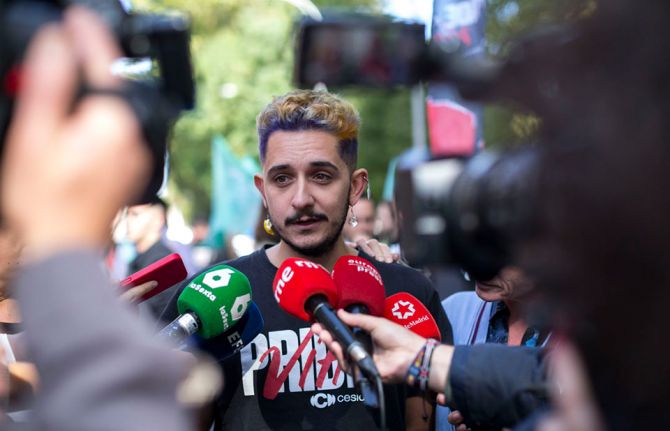

© UNAIDS/H.Nhan — in Bangkok, Thailand.
Feature Story
Celebrating dignity and respect for all
03 March 2014
03 March 2014 03 March 2014Tolerant, compassionate and peace-loving people around the world lent their hearts and voices to raise awareness and celebrate Zero Discrimination Day for the first time on 1 March 2014. The day was an unprecedented opportunity for people in every corner of the world to promote and celebrate everyone’s right to live a full and productive life with dignity—no matter what they look like, where they come from or whom they love.
The zero discrimination campaign reached out hundreds of thousands of people with tens of thousands actively pledging their support. From the President and First Lady of Gabon, the First Lady of Chad and Oscar-winning actors to school children in Guatemala and Moldova. From medical doctors and patients, to religious leaders, ambassadors and celebrities. People from every corner of the world expressed their solidarity by sharing their stories and their butterfly photos––the transformative symbol for zero discrimination.
“As First Lady of Gabon, as a mother, as a woman, as Commissioner of the UNAIDS - Lancet commission, I say NO to discrimination and I call for zero discrimination, tolerance and compassion in Africa and all over the world,” wrote Sylvia Bongo Ondimba.
Using social media platforms, many in this new social movement called for protection of the most vulnerable—people who face discrimination because of their race, religion, nationality, sexual orientation or identity, disability, gender or age.
“If you're reading this, and are going through pain, injustice or inequality, my words won't change your reality. But please hang on, and know that you have a friend in all of us” wrote James Chau, UNAIDS Goodwill Ambassador for China.
Messages were received from advocates representing affected communities, youth, government officials, media, UN officials and many other people from all walks of society.
“All around the globe there are kids and adolescents being teased just because they are different. Instead, we should encourage schools to accept and make visible the wide range of cultures living in our classrooms,” wrote Sebastián Arriagada, Teacher education student from Chile. “If there is any solution to discrimination, and I deeply believe there is, I can bet it all starts with our countries' education systems.”
The largest mobile telephone service provider in Malawi promoted zero discrimination by sending messages to its subscribers on 1 March. “We are happy that we are able to help mobilise communities to create awareness around Zero Discrimination Day which advocates for tolerance and compassion,” said Dina Mahamat Amadou, Acting Managing Director of Airtel Malawi.
People can continue to show support for zero discrimination by going to the Facebook page http://www.facebook.com/zerodiscrimination, using #zerodiscrimination hashtag on Twitter or submitting photos with a butterfly sign on Tumblr http://zerodiscrimination.tumblr.com/.
Zero Discrimination Day will be celebrated each 1 March.



